An update on the COVID-19 virus, what is happening across the world and in the U.K. Ideas for looking after yourself and information about the vaccine in the U.K.
Transcript
DownloadMark
Hello and welcome to the podcast "English for Life in the UK". This podcast is for people who want to improve their English and at the same time learn something about life in this country. And I am joined today by Phoebe and Christine. Phoebe - how are you?
Phoebe
Hi, Mark, I'm good, thank you. How are you?
Mark
I'm great, yeah - well, considering the circumstances, I'm good. Christine : how are you?
Christine
I'm feeling well, today. I'm feeling good. I've been out on my bike and I managed to find some sunshine, which I liked very much.
Mark
That's lovely. That's lovely. I think we're going to talk a bit about some of that later on.
So, today, we're going to do an episode about the Coronavirus and what's been happening around that. We did an episode, back in April, And yet, here we are, in the January of the next year, and we're still deep in the middle of this crisis, this pandemic.
So a pandemic is when a disease spreads rapidly far and wide, across many countries.
So what we're going to do today, is we're going to say a bit about what the overall situation is, across the world. We're going to say something about what's going on in the United Kingdom and to some extent, locally - where we are in Yorkshire. We're going to say something about how you can look after yourself - how we've been looking after ourselves and how other people can, through these difficult times, and then we're going to talk about what's happening with the vaccinations, because that really is - we hope - our way out of all of this.
So that's the general area that we're going to cover today. I should say straight away that if you want absolutely accurate, up-to-date information, you are better going to the Government website - that is: gov.uk - that's the website for this country, or the NHS website (nhs.uk); again, that's the health service in the United Kingdom, and there, you will get lots of very accurate, very up-to-date information. But we're going to cover things which, we hope, will be generally helpful, here.
(2 minutes 55 seconds)
So - the sad thing to say is that this virus is still very much with us and really has spread across to just about every country in the world. More than 100 million people across the world have been infected with the virus and more than 2 million people have died, world-wide. So this is an extremely serious event that we are in the middle of.
It's particularly people who are in their 60's and over - 60 years old and more - who have difficult health conditions already, who are the most likely to get seriously ill and sadly, to die, but actually, we also know that people of all ages and in all health circumstances can get ill from this.
The largest number of cases and deaths have been in the Americas: that's in the USA, and parts of South America, and in Europe, where the United Kingdom has been one of the worst affected. It has been lower in places like Africa, parts of Asia, Australia and New Zealand. Although still people have died in all those countries.
The other thing that's happened, there have been two - or in some cases, even three - waves of the virus. What that means is: a peak, a high number of infections and hospitalisations, and deaths, which has then gone down and then it's gone up again, like a wave, and certainly, in the United Kingdom, we're in the middle of - what you could call - a third wave.
The main symptoms of the virus - that's those things that indicate that you might have it - are a cough, a high temperature, and a change to your smell and taste. But it's important to say that one in three people with the virus don't have any symptoms, yet they also spread the virus, and that's another reason why it's so difficult and dangerous.
Now, apparently scientists tell us that all viruses change - they mutate - over time, and you get new variations of the virus and that has happened with this one, and, in particular, there are mutations in Brazil, in South Africa and in the United Kingdom, which are spreading more easily and more rapidly. Mostly, countries round the world have had to introduce restrictions of some kind. They ask people to: keep at a distance from each other, to avoid crowds, especially indoors, to wear masks, to wash your hands regularly, and to work from home, wherever possible.
On the positive side, hospitals, although they've got lots of cases, have got better at treating people. We do know more about how to treat people now and the other thing, which we're going to say more about later, is that we do now have some vaccines which have been approved and are starting to be used.
So, that's the general picture of things there. Phoebe, I think you’re going to tell us a bit about what's going on in the United Kingdom at the moment.
(6:44)
Phoebe
Yes. I can tell you more the about the UK. Now, as we talked about before - obviously the UK is made up of 4 countries - England, Scotland, Wales and Northern Ireland. And each country does have its own government and each country is responding to the virus. Every single country in the UK is now in lockdown.
Wales: they went into lockdown on the 20 December and they are still in lockdown and I don't think any of our countries will be coming out of lockdown, anytime soon - but in England, where we live, at the moment, this lockdown only started on 5 January, which some people have said was too late and we should have done it, the same as Wales - you know, before the New Year. And this lockdown is not as strict as it was in March.
I don't know how it feels for you, Christine and Mark? For me, this lockdown kind of feels the same as before lockdown; because, my job - I can work from home - so it kind of feels it stays the same. I can go to the shops the same, apart from now - clothes shops have closed - only food shops are open. Has it much changed for any of you?
Christine
I find it a bit of a shame, I can't meet a group of friends outdoors, now. I used to have a large group of friends and we liked to meet up - we were .... before lockdown, we were meeting up, outside, chatting, going for a walk. We can't do that now. Only .. I can meet one other friend and go for a walk, it is sad.
Mark
I have seven grandchildren and we are helping out with childminding with one of them but we are only allowed to do one.
Phoebe
Yeah - you're only allowed to look after one of your grandchildren. That must be hard Mark. Yeah - it's effected everyone differently. For some people it will be a huge change. My brother is twelve years old so he goes to school but he's not going to school anymore, because, in the new lockdown, they've closed all the schools. So all the students - can you imagine? - are all sitting at home on their laptops or computers or 'phones and trying to do lessons, on-line, through Zoom. Bless him. My brother's been trying very hard, but it's so hard, and it must be so difficult for the teachers as well.
Only shops are open for food, and everyone has to work at home, unless they can't; for example, if you're a cleaner or a builder - any occupation where you have to go to the place of work. We used to be able to meet up to six friends, but now you can only meet one friend, outside; you can't go to people's houses or visit people. Obviously, if you have to go to hospital or to the doctor's, you can do and, like you mentioned, Mark, childcare - that's another important reason, where people can leave their homes. Most importantly, we can exercise once a day, so I like to go out for my walk, if I can, once a day - and get some fresh air.
(10:04)
Christine
Yes - I go for walks too, Phoebe but I'm finding it a bit different, in this lockdown. In the first lockdown, in the Spring, I actually really enjoyed it. It was lovely. I could watch the flowers and the trees come into bud, the leaves start - but now it's winter and it's cold and I find .... I just find that my mood is lower than it was in the Spring time and I'm finding it more difficult and I think quite a lot of people are. I don't know ... I mean I do some things to try to lift my mood and get through the dark winter - I wonder what you do, Phoebe? You said you go for a walk - what else do you do that keeps you ,,, keeps you cheerful, in these difficult times?
Phoebe
One thing I've been doing a lot actually is listening to audio books. Through the library you can listen for free, which is great. So I just found my local library on-line and I've got an app on my phone to listen to the books, so that's great, and also, I love listening to podcasts. I'm sure some of our listeners maybe do also, if they're here, listening. [Phoebe laughs]
Christine
Sounds good, Phoebe. What about you, Mark?
Mark
As Phoebe said, I go for a walk - regularly - we have some woods near us and I love going into the woods and listening to the bird sound and watching and of course we've had snow recently, so that made it quite beautiful there. I think, the other key thing that's kept me going, is that I've been regularly in touch with my children and my grandchildren, often using Zoom and WhatsApp, and other ways of keeping in touch, but I do think keeping in touch with people is an important part of looking after yourself and looking after those other people as well.
Christine
Yes - it is, isn't it? Really important to stay in touch with people. And something I find myself doing - I'm trying to relax more - I'm actually doing jigsaws. I haven't done them since I was a child, really, but now we have a jigsaw on the go and I like to just sit and peacefully do a jigsaw and I do try and do something creative as well. I think it is important people keep stimulating yourself; perhaps, trying something new. I expect our listeners are stimulating themselves by learning English. I've taught myself a new way of knitting.
Phoebe
It will be good to hear from the listeners what they're doing to keep occupied. If they have to stay home, a lot at the moment, and how people are staying in touch with people. Let us know - send us an email.
Christine
So, don't forget - you can email us: englishforlifeintheUK@gmail.com
Mark
Thanks, Christine. So Phoebe, tell us a bit about what's happening in hospitals, in the UK, at the moment.
Phoebe
They're obviously doing an amazing job, at the moment, to treat as many people as possible, everyone, and do the best they can for them. And they are run by our NHS - our National Health Service - that we're all very, very proud of. I think, in polls, when you ask British people what they're most proud of, it's nearly always the NHS. But they are under a lot of pressure at the moment, because so many people are so ill and they are committed to treating everyone.
You don't have to pay to go to hospital in this country. They're making a lot of effort to do everything they can - they've got special wards for people with Covid, to try and stop it from spreading, as well. Obviously, they are continuing to train all their doctors and nurses, so they can get as many people helping to fight this virus as possible.
One of the other amazing things that they're doing, at the moment, is rolling out the vaccine and it's been really important to tell people in the UK that you will get the vaccine and it will be for free, and it will be on the NHS. If anybody tries to call you or sends you a text to say "call me, and I'll give you the vaccine" don't listen to them - it's a scam. Report that to the police.
(14:40)
Mark
Let's just say a bit more about the vaccine. So there are actually three different vaccines that have been approved for use, in the United Kingdom, and we are actually ahead of almost anywhere else in the world, in terms of the number of people that we are vaccinating. So, there's over 4 million people already have had the vaccine - one dose, at least, of the vaccine.
There is a priority list and it is, at the moment - those people who are over the age of 80, those people who are particularly vulnerable, health-wise, those people who are in care homes, and those people who work in health and social care. So that's where the priority is, at the moment - then it's going to come down the age groups, so the 70's next and then into the 60's. The Government has set itself the target that, by the middle of February, they will have all the over-70's vaccinated, as well as those other priority groups I mentioned. And, at the moment, the prediction is that the ... - if all goes well - we could have all adults vaccinated by September, of this year, but obviously that still will depend upon the delivery of the vaccine.
Phoebe
Do you know anyone who's had the vaccine yet, Mark?
Mark
I do, actually - my mother-in-law, who is 94, I think it is, she was one of the first people in the country. On the very first day that the vaccine was given, she had it.
Phoebe
Amazing - fantastic - she's making history. My sister works in a care home and she's had the vaccine as well.
(16:33)
Mark
A couple of other things I wanted to say about the vaccine: one is, if you are in the United Kingdom, you will be contacted by your doctor, when it is your turn, as long as you are registered with a doctor. So, if any of you are not yet registered with a doctor - with a GP's surgery, that's a General Practitioner - that's the name for doctors in this country - then you need to make sure that you've got yourself registered, then you will be on the list when it is your turn.
I think the other thing to say is: there are some people who've been worried about the vaccine because of how quickly it has been produced, but actually, the processes that the scientists have gone through, mean that the vaccine is actually very safe. They've had very strict standards for the quality, the safety and the effectiveness. There have been trials and there are checks of every batch of vaccine as it gets produced, so we are very confident that the vaccine is safe, but there have been - as I said - over 4 million people have been given the vaccine, so far in this country, and there are almost no people who have had any serious side-effects from it. So, a sore arm, yes - but no serious side side-effects from it. And the other thing to say that has ... occasionally people have worried about, there are no animal products in the vaccine and there is no alcohol, in the vaccine, so for those people for whom that's important, in terms of their religious beliefs and other beliefs, that's just to say, that it is safe in those terms as well.
Phoebe
Every country in the world and all scientists across the world, were working together to make this vaccine. Normally, when the scientists make a vaccine it's just one country, maybe two, but because this is such a huge problem across the world, everyone worked together. It's amazing really, and now we can get the world vaccinated against this virus.
Mark
The World Health Organisation has been an important organisation that's coordinated a lot of this, over these last few months and I think we would say it's really important that people do get the vaccine, because this is the way out of it. Because the more people we get vaccinated, the less the virus will spread and eventually we will rid ourselves, largely, of this virus. We may have to have vaccinations regularly.
Christine
And I'd like to be sure you know that there will be organisations where you are. If you are in Halifax, of course, St Augustine's can help you. There are organisations that will help people right across this country. Halifax, St Augustine's provide hot food on ... twice a week, on Mondays and Thursdays, and they have advice lines on Tuesday, Wednesday and Thursday, for example, where you can 'phone up for help and so I recommend that you do that, if you need it. And if you're not local to Halifax, then look about locally, make enquiries, and find out what's available locally, because there are lots of community organisations that help people, in the U.K.
Mark
That's great, Christine. There is help around. There are things you can do yourself, to look after yourself through all of this, and with the vaccination, there really is light at the end of the tunnel.
(Music) (20:28)
Language Support
This is the part of the podcast where I choose some words or phrases from this episode and explain them in a little more detail.
Just two of them today - right at the end of this episode I said that the vaccine gave us light at the end of the tunnel. This is the idea that after a long period of difficulty, that actually, you're nearing the end. It's a metaphor - that is, using one thing or idea to stand for, or represent, something else, so here we've got the idea of long dark tunnel and eventually you see a little glimmer - a small amount - of light, in the distance and that tells you, you're getting towards the end. It can be used negatively - so you can say that there is no light at the end of the tunnel, which would mean you're in a difficult period, and you can't see the end of it.
And then, the second one is just a little bit more about the word "lockdown" which was used here and is used, officially, by the Government, sometimes to talk about what's happening in this country, at the moment, to protect us from the virus. A lockdown is a decision to tell people to stay where they are, not to go out or to leave the area where they are. It's often used in prisons. When prisons go on a lockdown, it means all the prisoners have to stay in their individual cells, for example. Here, it's used in the pandemic. It's not, strictly speaking, a full lockdown: it's not that people can't leave their homes, it's that they are told to stay in, as much as possible, and only to leave for very specific reasons, which were set out in this episode.
(Music) (22:50)
That's it for this week. You can find the transcript - that's the written version of this episode - on our website:
www.staugustinescentrehalifax.org.uk
And that's where you can also find links to all the other episodes, and the transcripts, so you can listen and read along at the same time. That's also where you can find out how to donate, to help our work. We are a charity, supporting particularly, refugees, asylum seekers and migrants but also, all those in need in our local area and we would welcome your support, if you felt able to give it. If you follow, on the website, the links to "Get Involved" and "Donate".http://staugustinescentrehalifax.org.uk/get-involved/#_donate
We also have an email address - that's englishforlifeintheUK@gmail.com
And we would love to hear from you - your thoughts on our podcast and ideas for the future.
We also have a Twitter account : @EsolSaint
and there is additional material on that site.
I'll spell out all those addresses:
So, the website: w-w-w-.-s-t-a-u-g-u-s-t-i-n-e-s-c-e-n-t-r-e-h-a-l-i-f-a-x.org.uk
So that's the website.
The email is: englishforlifeintheUK@gmail.com - And that's "English for" spelt: f-o-r
And finally, the Twitter account: is : @ [at] [capital E] E-s-o-l- [capital S] -S-a-I-n-t
(25:24) (ends).
All Podcast Episodes
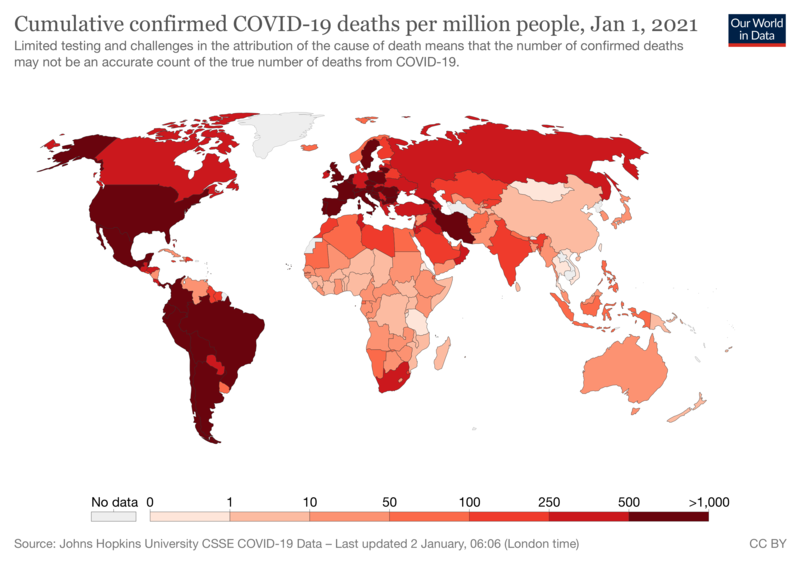
So far, more than 100 million people worldwide have been infected with Coronavirus and more than 2 million people have died
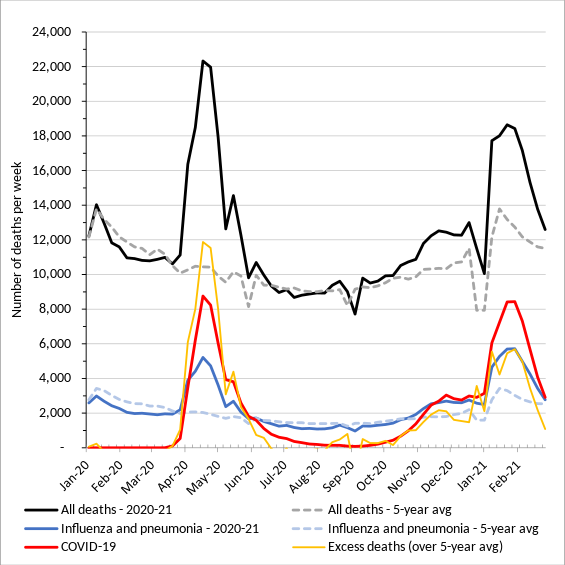
In the UK you could say we have suffered 3 waves of Coronavirus
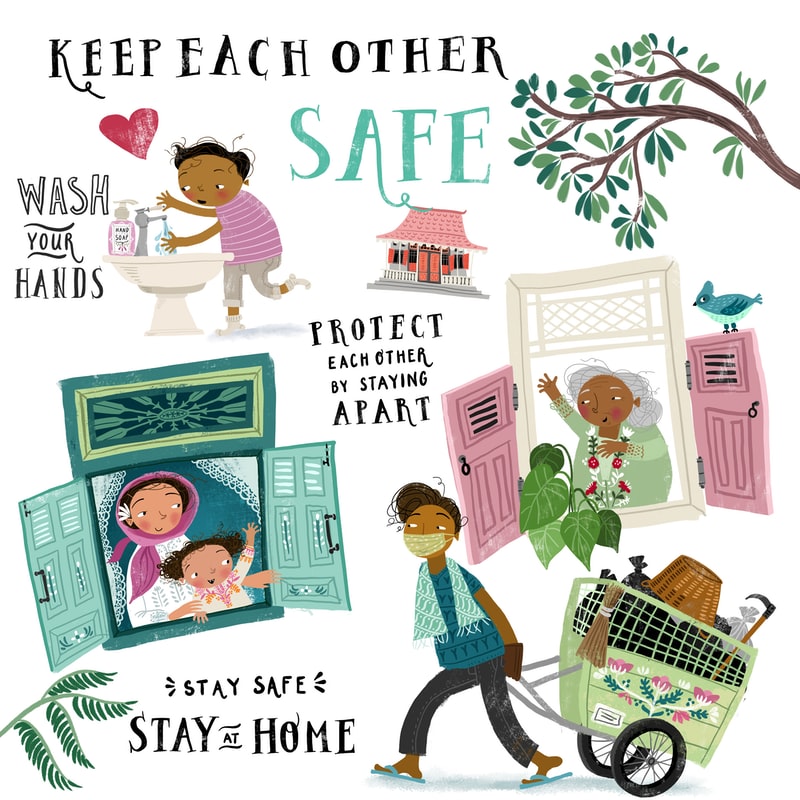
Around the world people have been asked to wash their hands regularly, wear a mask and keep their distance from each other
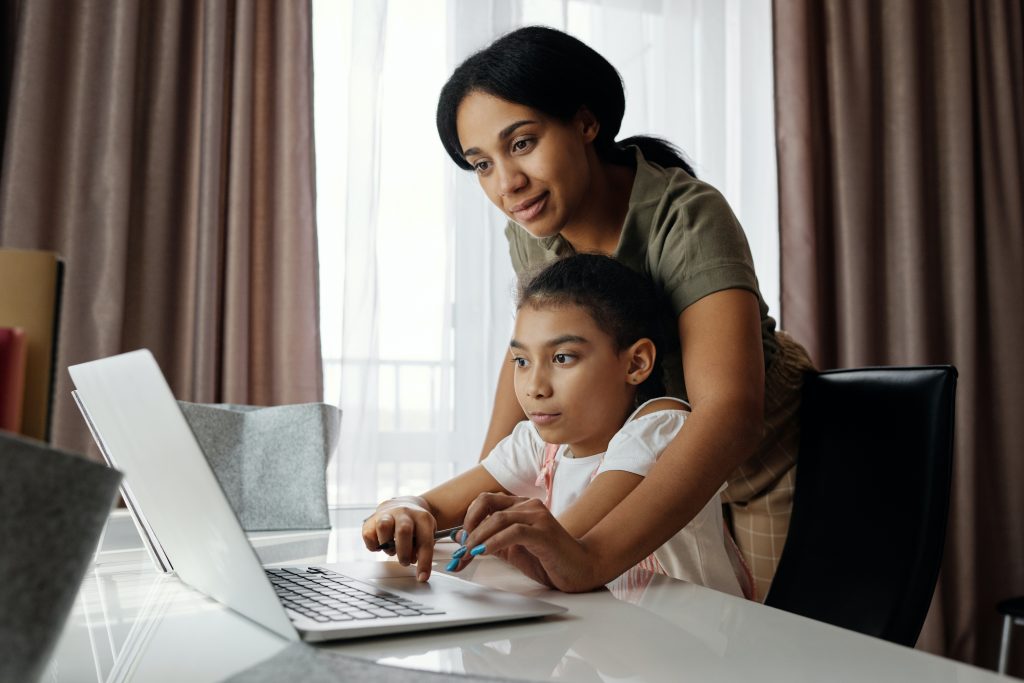
Children in the UK are working from home using laptops and phones to do online learning

It is very important to exercise outdoors during the lockdown
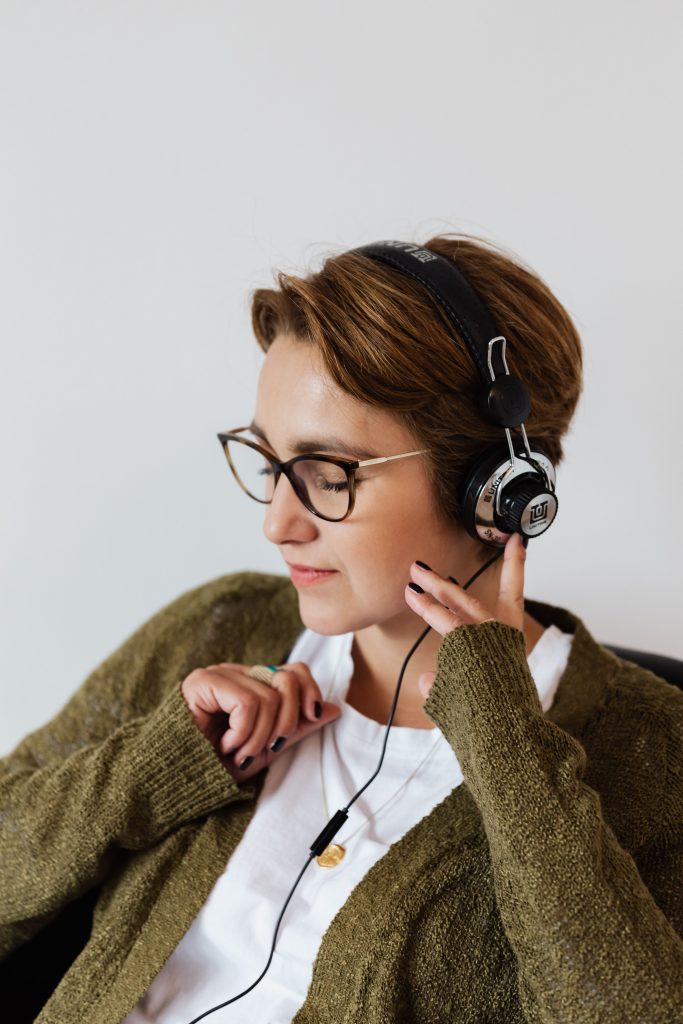
Listening to Library audio books and podcasts on line is a good lockdown activity

Most British people are very proud of the National Health Service
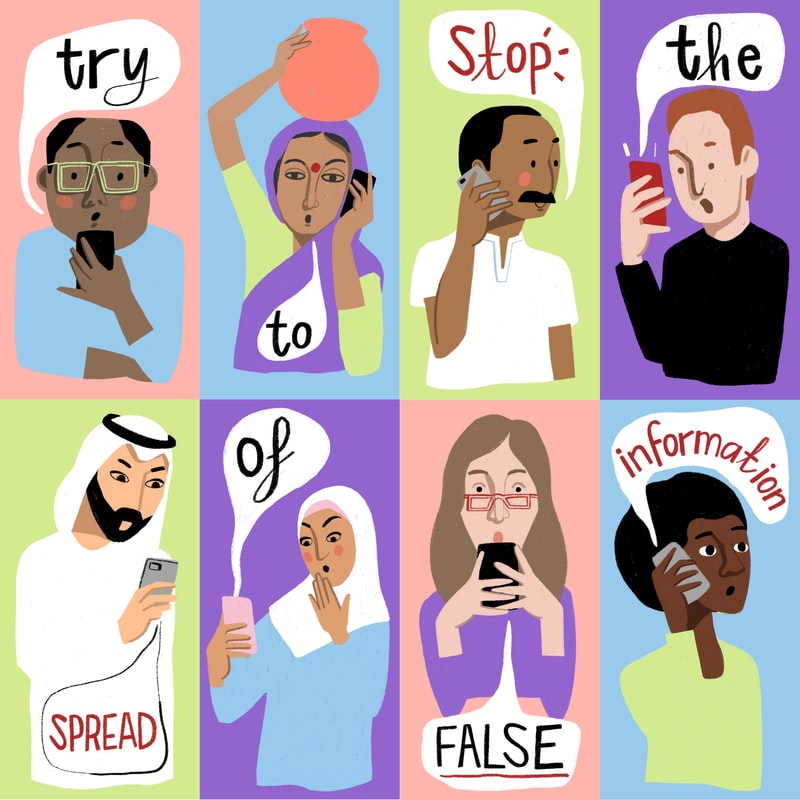
There has been false information about the vaccine on line, but scientists believe it is very safe and the way out of this crisis is for all adults to be vaccinated.
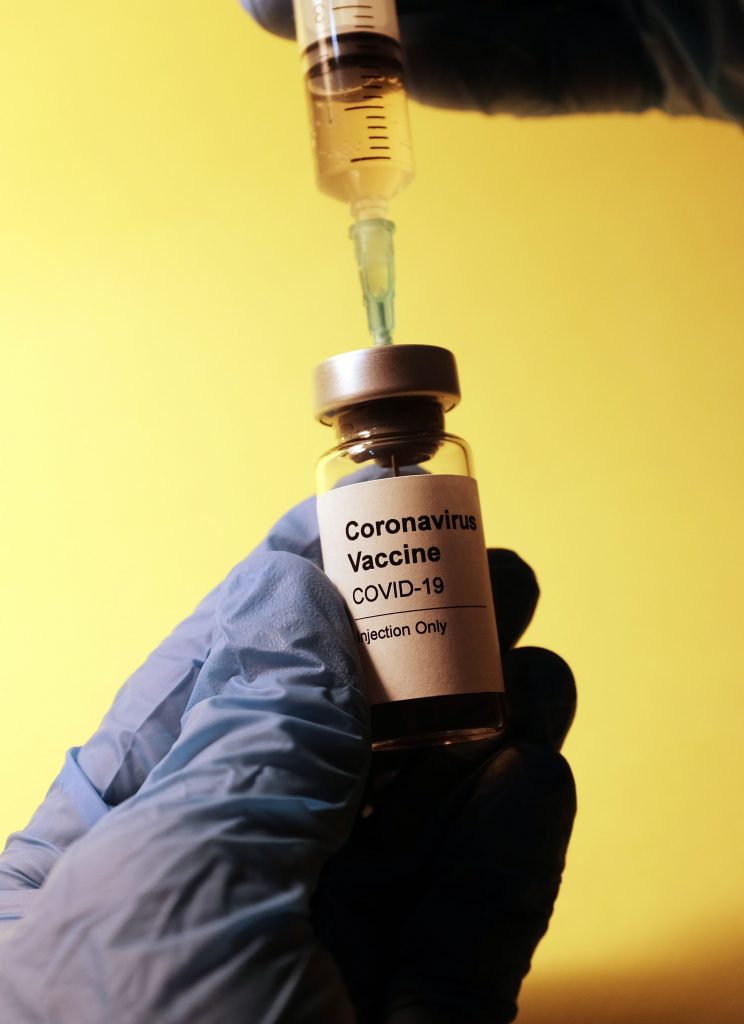
You will be contacted by your doctor or the NHS when it is your turn to have the vaccine - but do make sure you are registered with a doctor


